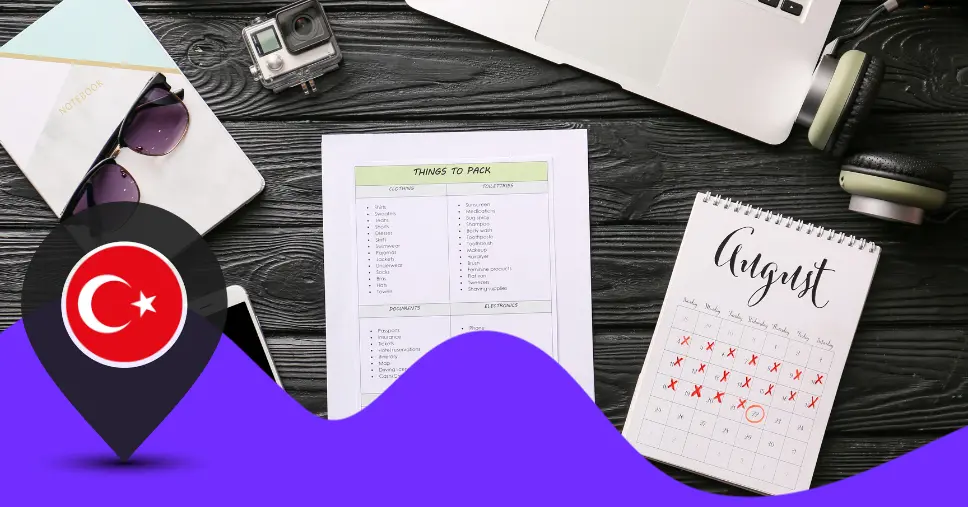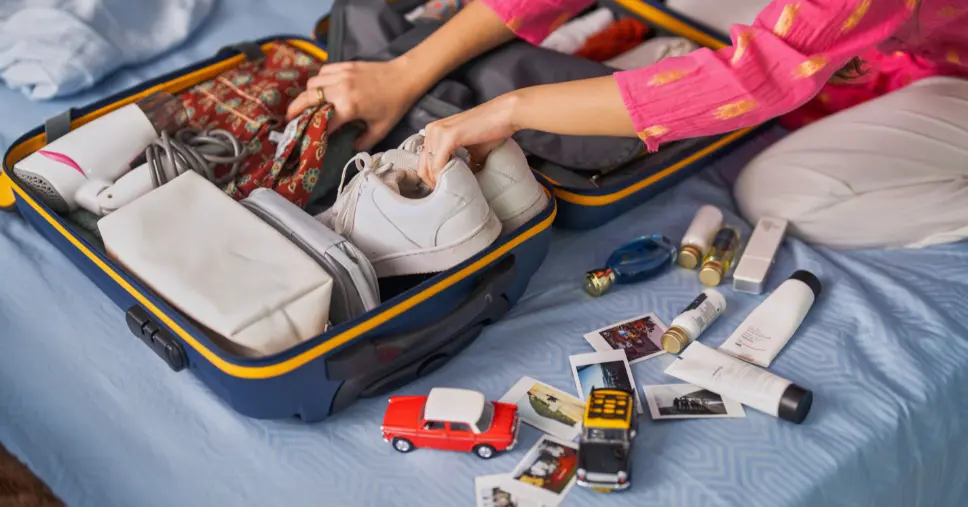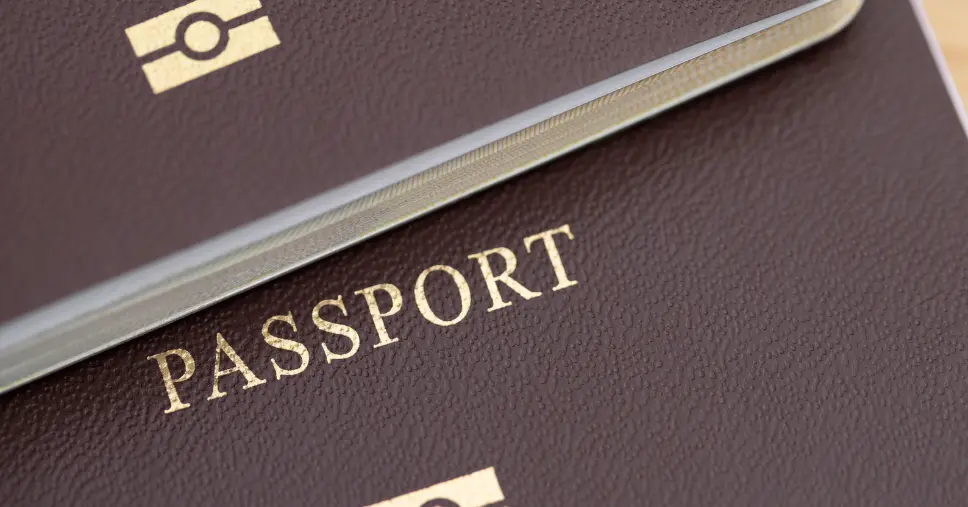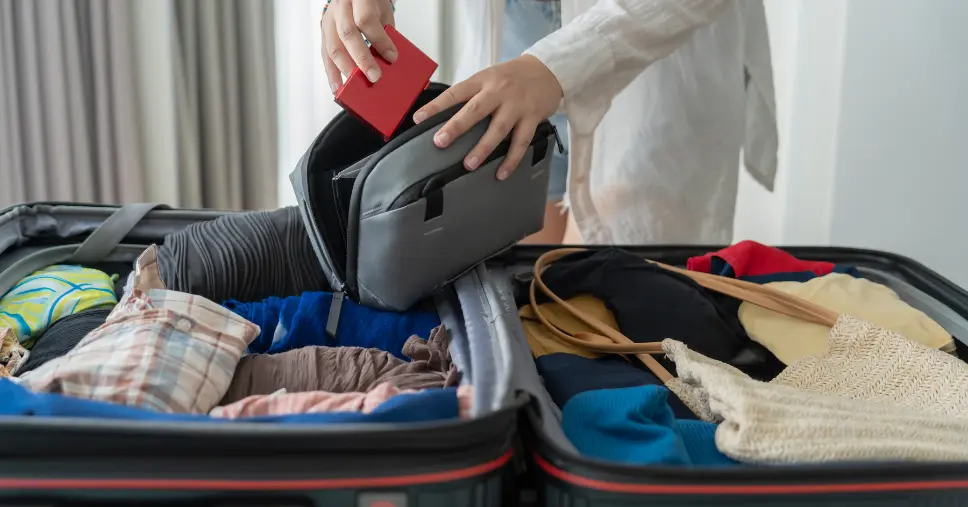
Turkey Packing Checklist: Must-Have General Travel Essentials
These are the absolute non-negotiable items you must have with you, no matter your destination. Having these items ensures your trip goes smoothly without spending your hard-earned bucks in a state of panic. If you’re mapping out your trip, a solid Turkey travel guide can help with the big picture, but this list has you covered on the small-but-crucial things.
Suitcase vs. Backpack: Choose Your Base Wisely
The varying states of Turkish infrastructure can impact your mobility on your trip. You should consider your travel goal before packing. If you’re staying in Turkey’s best cities, like Istanbul, Izmir, or Antalya, a rolling suitcase is your best option. Whether to bring a carry-on or medium checked bag depends on your needs, but the convenience of rolling suitcases is ideal for city life. For adventurous routes or budget flights with expensive checked baggage, a 40-60L waterproof backpack is recommended. It supports extreme weather conditions, distributes weight better, and is easy to carry around.
What Clothes to Wear in Turkey
Nature is not the only diverse thing in Turkey. The country’s geography and cross-continental position also bring very different cultures together. You’ll experience lively beach parties in one area and conservative traditions in another. So, pack versatile clothing and dress smart.
In coastal areas and high altitudes, temperatures rise during the day (35°C/95°F in summer) but drop quickly at night (10–12°C/50–54°F). Bring lightweight, breathable T-shirts, tank tops, pants, modest dresses, and skirts for daytime wear. Stick to linen and cotton fabrics, avoiding synthetic ones like polyester, which trap heat and smell.
Layering is key. Always have a light jacket or fleece on hand, as temperatures can change drastically, even in summer. For winter or colder regions, pack a windbreaker or heavier jacket.
In metropolitan cities, T-shirts and shorts are fine, but remember to pack headcovers (shawls or scarves) for religious sites. Modest dressing is expected in more conservative areas, so pack accordingly.

What Footwear to Wear in Turkey
When visiting Turkey, you’ll do a lot of walking. Make sure you pack the appropriate footwear for that. This means closed-toed sneakers and cushioned sandals that can give you comfort through hills, cobbled alleys, and uneven pavements. It also means not to wear shoes that are new and can easily break.
For beach resorts, hammams, or hotel showers, pack flip-flops and sandals. They’re lightweight and easy to slip on for casual strolls or heading down to breakfast.
While we suggest you use your shoes as versatile as possible, bring an extra pair of fancy shoes if you don’t think your comfortable walking shoes are chic enough.

Travel Documents
The most important document you need for your trip to Turkey is your passport. The minute you book your trip, check that your passport is valid for at least 6 months after your return home. Even if the Turkish Government has looser policies, airlines might still deny you services. You should also make sure that your passport has enough pages left for the trip.
Next is your visa, the requirements for which depend on your country of origin. You should be able to get an e-visa after meeting these requirements. For more details, refer to our Turkey visa guide. Still, make sure to have a printed and an offline (PDF or cloud-saved) version of it available when your departure comes.
You also need travel insurance for medical emergencies, lost luggage claims, or travel delays. Print out your travel insurance documents and keep digital access ready. Make sure it covers adventurous activities if you’re hiking or ballooning.
Electronics and Gadgets
There’s a good chance that Turkish electricity requirements don’t match your gadgets. The country uses Type C (Europlug) and Type F (Schuko), 230V/50Hz. A universal adaptor with USB-C and USB-A ports is essential to avoid expensive airport charges. Since your phone will likely need charging from all the map searches, translations, and photos, and public transport rarely offers outlets, a portable power bank (10,000–20,000 mAh) is a smart investment. Many budget hotels have only 1-2 outlets, so a compact extension cord allows you to charge multiple devices. Don’t forget your entertainment gadgets, like noise-cancelling earbuds, headphones, tablets, or Kindles, to stay entertained during long journeys.
Phone and eSIM
Aside from the no-brainer of bringing your phone, you also have to think ahead about your connectivity. You have three options here. The first is to go with your regular SIM card and pay the crazy roaming costs it incurs. Another option is to get a local SIM card, which is much more cost-effective but could be lost in the process of constantly changing SIMs.
The last option is to download an eSIM and stay connected while travelling in Turkey. That way, you’ll save your money for fun things and don’t need to constantly worry about losing your SIM cards.





